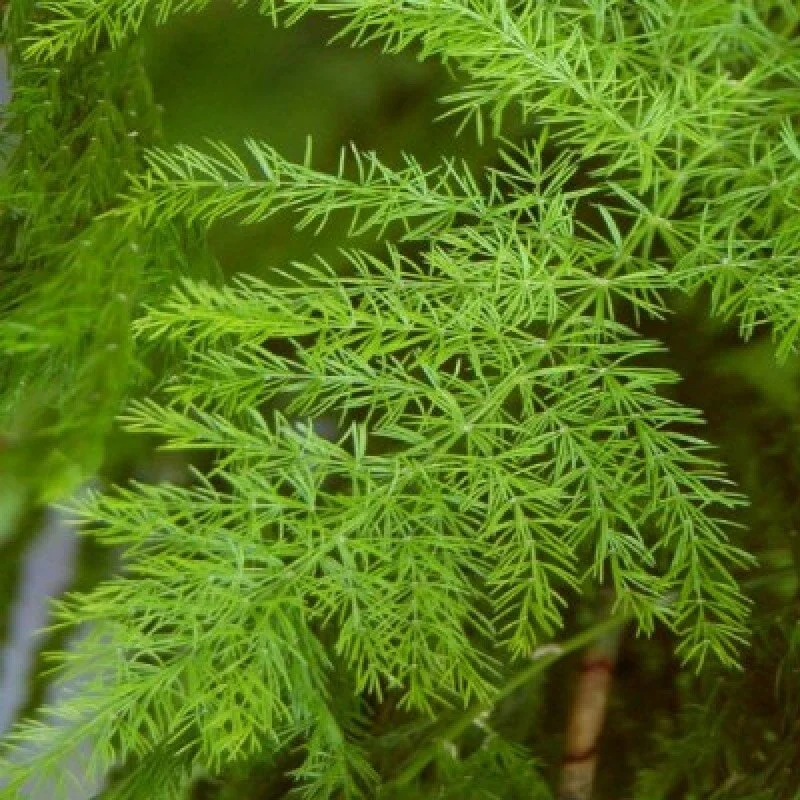Shatavari
Asparagus racemosus
Main active constituents
Shatavari is rich in active constituents such as galactose, arabinose, steroidal, glycosides and saponins.
Physiological Effects
Parts Used: Roots
Traditional Use and Health Benefits
Shatavari is known as the "Queen of the Herbs" for female health and libido. It has been used for 1000's of years as a general female tonic and hormone balancer. Holding a prominent position in the ancient Indian healing system of Ayurveda, its texts claim that it can strengthen a woman to the point where she is capable of supporting 1,000 husbands!
Shatavari Benefits
Female Reproductive Health Supporting women through every stage of their lives, Shatavari's main constituents are steroidal saponins that suggest its use as an estrogen regulator. This modulation helps to regulate menstrual cycles, manage PMS symptoms, alleviate menstrual cramps and control the amount of blood lost. Shatavari greatly helps with fluid retention and may also be helpful with the uncomfortable bloating often suffered before a period.
This versatile herb can be very helpful to women who have fertility issues due to stress or immune-mediated problems, with Shatavari supporting proper immunological function. It supports the mucous membranes as it contains mucilage, this lines and protects the membranes of the cervix which is helpful for women with low cervical mucous. Adequate cervical mucous allows sperm to swim freely through the cervix.
The saponins contained in Shatavari have been shown to have an "anti-oxytocin" effect which in turn may help uterine contractions subside - protecting against threatened miscarriage. Consultation with an Ayurvedic or Naturopathic Practitioner is advised before using Shatavari for this condition.
Due to its oily, heavy nature, Shatavari nourishes the female reproductive system from within to relieve menopause symptoms such as vaginal dryness, hot flashes and insomnia. This phytoestrogen-rich herb naturally helps to balance the hormones responsible for many of the more unpleasant symptoms associated with this change in life. Shatavari also stimulates and balances the production of happy hormones; endorphins, serotonin and dopamine - meaning it can greatly reduce mood swings, irritability and menopause induced depression.
Aphrodisiac Shatavari works as an aphrodisiac for women by bringing all the symptoms of women's sexual health, through all the changes of a woman's life, into balance. Research shows that Shatavari increases blood flow to the female genital area, enhancing sexual sensation, sensitivity and increasing vaginal lubrication. It is known to have a hormone balancing effect, making it useful for women who experience loss of libido as a side effect of the menopause.
In men studies show it to be an excellent aphrodisiac when combined with Ashwagandha. It promotes the size, strength and stiffness of the penis and can treat impotence and sexual debilitation. It has also been shown to increase spermatogenesis in men, providing higher sperm counts and a larger percentage of healthy sperm.
Digestive Health Research has found that Shatavari is an excellent herb for cleansing the gut. It improves digestion by increasing the activity of digestive enzymes lipase and amylase. Lipase aids fat digestion whereas amylase helps with the digestion of carbohydrates. In addition to this, Shatavari promotes gastric emptying and normalizes the motility of intestines. Intestinal motility disorders are abnormal intestinal contractions, such as spasms and intestinal paralysis. Abnormal intestinal motility describes a variety of disorders in which the gut has lost its ability to coordinate muscular activity because of internal or external causes. Shatavari can also help with the treatment and management of gastric ulcers.
Immune System Support Studies show that Shatavari plays a very important role in stimulating immune cells. This is thought to be due to steroidal plant compound contained within the root "sapogenin", a potent immune stimulator. It enhances the body’s resistance during normal and immune-suppressed conditions, helping to boost immunity during immune-suppressed conditions and aiding in recovery the immune system itself. Sapogenins also stimulate the cells that fight infection, reducing the overall population of infection-causing cells.
Contraindications/Precautions
Due to a lack of research, little is known about the safety of long-term or prolonged use of shatavari. Since shatavari is related to asparagus, it should be avoided by individuals with an allergy to asparagus.
This herb has been seen to have a slight diuretic effect, which might affect how the body metabolizes other medications.1
Shatavari is thought to contain phytoestrogens—a class of compounds with estrogen-like effects. Therefore, anyone with hormone-sensitive conditions (such as breast cancer, endometriosis, and uterine fibroids) should avoid the use of shatavari.
Also, the safety of supplements in pregnant women, nursing mothers, children, and those with medical conditions or who are taking medications has not been established.
Disclaimer
This information is intended only as a general reference for further exploration, and is not a replacement for professional health advice. This content does not provide dosage information, format recommendations, toxicity levels, or possible interactions with prescription drugs. Accordingly, this information should be used only under the direct supervision of a qualified health practitioner such as a naturopathic physician.

